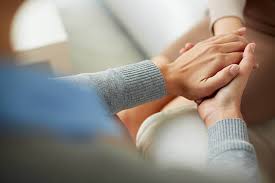Kidney pain is one of the most excruciating experiences anyone can ever have. It affects your daily life and overall well-being. Whether you’ve been grappling with kidney pain for a while or are looking to prevent it, understanding the causes, symptoms, and strategies for relief is crucial.
Let’s discuss the root causes of kidney pain, identify the symptoms, and provide you with valuable tips and remedies to help you alleviate and prevent this discomfort.
What Are the Causes of Kidney Pain?
Understanding the underlying causes is the first step toward effective management. Here are some common reasons behind kidney pain:
Kidney Infections
Kidney infections occur when bacteria travel up the urinary tract and infect the kidneys. The infection can lead to inflammation and pain in the kidney area. You can get yourself treated for kidney infection by the best urologist in Karachi.
Kidney Stones
Kidney stones are hard deposits of minerals and salts that form in the kidneys.
When they move through the urinary tract, they can cause severe pain, often described as one of the most agonizing types of pain.
Kidney Cysts
Simple kidney cysts are fluid-filled sacs that can form in the kidneys. While most are harmless, larger cysts may lead to pain and discomfort.
Urinary Tract Infections (UTIs)
UTIs can affect the bladder and, if left untreated, can spread to the kidneys, causing kidney pain.
Trauma or Injury
Blunt force trauma or injury to the back or side can result in kidney pain. It may be due to bruising or damage to the kidneys themselves.
Polycystic Kidney Disease (PKD)
PKD is a genetic disorder that causes numerous cysts to develop in the kidneys, leading to pain, kidney enlargement, and reduced kidney function.
Hydronephrosis
This condition occurs when urine buildup causes the kidney to swell, leading to pain and potential damage if left untreated.
Dehydration
Inadequate fluid intake can lead to concentrated urine, potentially contributing to the development of kidney stones or other kidney issues.
What Are the Symptoms of Kidney Pain?
Identifying the symptoms of kidney pain is crucial for proper diagnosis and treatment. While the pain itself is the most obvious symptom, several other signs may accompany it:
- Flank Pain: Kidney pain is typically felt on one side of the lower back, below the ribcage, and can radiate towards the groin. It is often described as a sharp, stabbing pain.
- Hematuria: Hematuria refers to blood in the urine, which can be a sign of kidney stones, infections, or other kidney problems.
- Frequent Urination: An increase in the frequency of urination, along with a persistent urge to urinate, can be indicative of kidney issues.
- Painful Urination: Pain or discomfort while urinating can signal a urinary tract infection or kidney problem.
- Fever and Chills: In cases of kidney infection, fever, and chills are common symptoms.
- Nausea and Vomiting: Kidney pain can often be accompanied by nausea and vomiting, particularly if the underlying cause is a kidney stone.
- Changes in Urine Color and Odor: Foul-smelling or discolored urine can indicate kidney problems.
Tips to Get Rid of Kidney Pain
These tips can complement medical advice and promote kidney health:
Stay Hydrated
Drinking an adequate amount of water is crucial for kidney health. Proper hydration can help prevent kidney stones and promote the flushing of toxins from the body.
Aim to drink at least 8-10 cups (64-80 ounces) of water daily, but adjust your intake based on your activity level and climate.
Avoid Over-the-Counter Pain Medications
Non-prescription pain relievers like ibuprofen and aspirin can potentially harm your kidneys when used excessively or for prolonged periods.
Manage High Blood Pressure
High blood pressure can damage the kidneys over time. If you have hypertension, work with your healthcare provider to manage it effectively through medication and lifestyle changes.
Maintain a Healthy Weight
Obesity is a risk factor for kidney problems. Maintaining a healthy weight through regular exercise and a balanced diet can reduce your risk of kidney pain and related conditions.
Quit Smoking
Smoking not only damages your lungs but also hinders blood flow to the kidneys, increasing the risk of kidney disease. If you smoke, consider quitting to protect your kidney health.
Reduce Stress
Chronic stress can contribute to various health issues, including kidney problems.
Practice stress-reduction techniques like mindfulness, meditation, yoga, or deep breathing exercises to help relax your body and mind.
Get Adequate Rest
Quality sleep is essential for overall health and well-being, including kidney function. Aim for 7-9 hours of sleep per night to ensure your body can repair and regenerate properly.
Use Heat Therapy
Applying a heating pad or warm compress to the affected kidney area can help alleviate pain and muscle tension.
Be cautious not to use excessive heat or apply it directly to your skin for prolonged periods.
Final Thoughts!
Remember to consult with a healthcare professional for a proper diagnosis and personalized treatment plan if you are experiencing persistent kidney pain or related symptoms.











